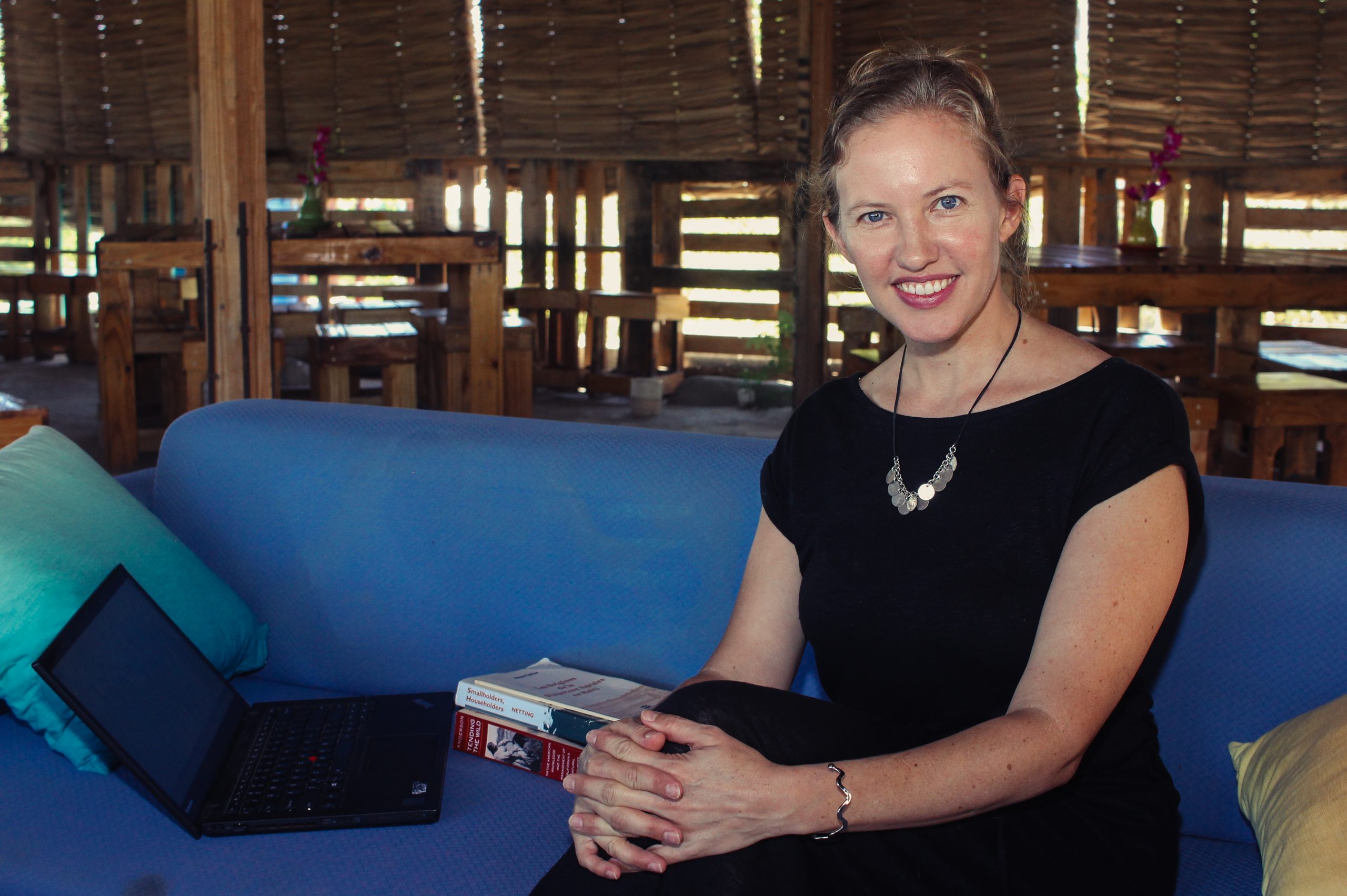Gustavus Adolphus College geography professor Anna Versluis is back on campus this fall after spending a nine-month term in Port-au-Prince, Haiti, through the Fulbright Scholar Program.
During her time in the Caribbean nation on the island of Hispaniola, Versluis taught a course at the University of Haiti and conducted research on land-use change and different agricultural systems. The class, which was housed in the university’s agricultural and veterinary sciences division, is similar to an upper level course she teaches at Gustavus titled “Remote Sensing of the Environment.” Remote sensing is a method for studying land-cover and land-use, climate and weather, ocean systems, and other environmental issues.
“The students I’ve had both in Haiti and the United States have many similarities. They’re hardworking, eager to learn, and have lots of energy and ask good questions,” the professor said. “In Haiti, however, there isn’t as much access to infrastructure such as high-speed internet, so we really work to capitalize on our learning opportunities.”

As a geographer, Versluis studies the relationships between people and the environment, along with how natural and cultural processes shape landscapes. Her research in Haiti focused on how different agricultural approaches, namely plantation agriculture and the subsistence farming known as the counter-plantation model, affect land use and the environment.
“The history of the Caribbean is built on a slave/plantation economy where crops such as sugar and coffee were cultivated exclusively for export,” Versluis explained. “The counter-plantation model consists of small-scale farming where family systems grow produce for themselves and the local market.” Each of the models has different effects – both positive and negative – on the environment and the economy.
“Haiti is where Christopher Columbus formed his first settlement and it was the first nation in the Americas (or in the Western Hemisphere) to abolish slavery,” she said. “The country is really a bellwether for the rest of the Caribbean and the Americas.”
Versluis first traveled to Haiti after earning her bachelor’s degree, when she took a three-year research and writing position in the country through the Mennonite Central Committee’s human rights organization. “I was interested in learning another language and looking for a cross-cultural experience,” she said.
That interest in cross-cultural learning has only grown now that Versluis is a professor. She believes the experiences she had in Haiti – both then and now – have shaped the way she teaches geography. “International travel and immersion gives me a larger frame of reference so I can look at the bigger picture,” Versluis said. “One of the things that’s most helpful is having a real-world example of how the choices we make as U.S. consumers have an impact on the rest of the world.”
The professor encourages all students to gain an international perspective. “It opens your mind to new ways of doing, thinking, and being,” Versluis explained. “You learn humility and become changed through experiences that are difficult to duplicate in a traditional classroom setting.”
“The experiences you have will tie back to the classroom and allow you to develop cross-cultural understanding,” she continued. “It allows you to ask new questions about yourself and about the world.”
 The Fulbright Scholar Program is named after Senator J. William Fulbright and is sponsored by the United States Bureau of Educational and Cultural Affairs. The Council for International Exchange of Scholars supports the administration of the Fulbright Scholar Program for faculty members and professionals.
The Fulbright Scholar Program is named after Senator J. William Fulbright and is sponsored by the United States Bureau of Educational and Cultural Affairs. The Council for International Exchange of Scholars supports the administration of the Fulbright Scholar Program for faculty members and professionals.

Leave a Reply